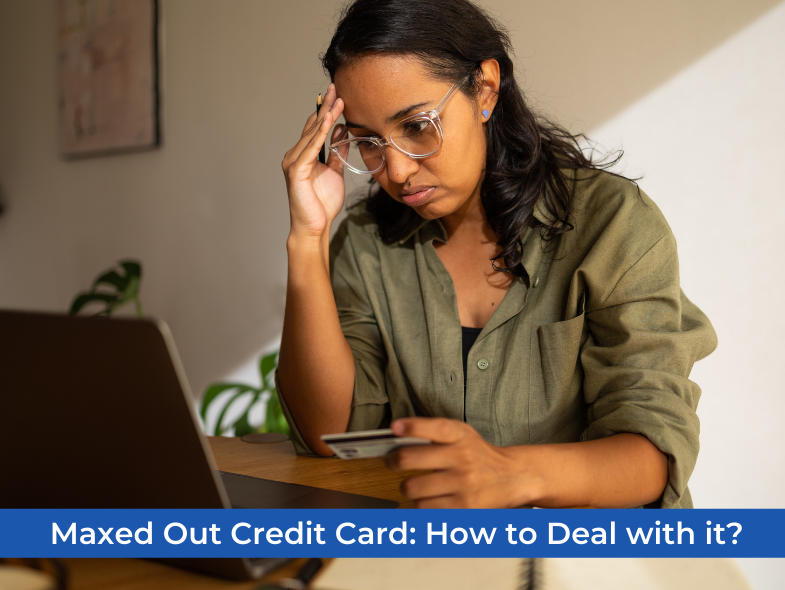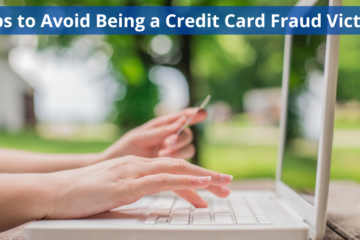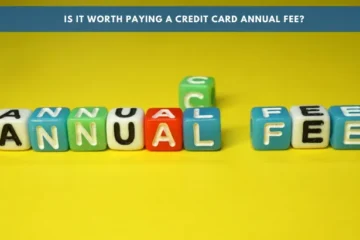Many people experience unpleasant financial situations like having their maxed out credit card at some point in their lives. It’s crucial to take care of this problem right away to prevent piling up more debt, lowering your credit score, and running into financial difficulties. To assist you in managing a credit card that has been used to its maximum limit, we will cover a variety of tactics and subtopics in this book.
• Identify the situation.
Considerably evaluating your financial status is essential before making any decisions. Recognizing your situation’s origins is the first step toward recovery. Determine the causes of your credit card’s maximum limit. Was it brought on by unforeseen costs, bad spending practices, or an emergency situation? Knowing what caused it will help you avoid having it happen again.
• Put the credit card away.
Stop using the credit card that has been maxed out right away to stop your debt from increasing. Your financial condition will only get worse if you keep making charges on it. Instead, until your credit card debt is paid off, rely on alternate payment methods like cash or a debit card.
• Establish a Budget.
A crucial first step in managing your finances is creating a budget. You may designate money to paying off your credit card debt thanks to a well-structured budget that makes it easier for you to keep track of your income and expenses. List Your Monthly money, track your expenses and lastly, set your credit card debt repayments as a priority by allocating a portion of your income to doing so while still paying for necessities.
• Discuss a deal with your credit card provider.
Contacting the credit repair service shouldn’t be a concern; they can be ready to collaborate with you to lighten your financial burden. Consider these options:
a. Ask your credit repair agent Canada to lower your interest rate, you can pay off your debt much more quickly.
b. To offer yourself more freedom, raise your credit limit, but be careful not to use the extra credit to accrue more debt.
c. Talk about a payment schedule that works for your budget. Some issuers provide debt relief choices or programs for difficult times.
• Look into debt consolidation.
Debt consolidation entails consolidating several loans into one that is easier to handle. Given that it often has a lower interest rate and a set repayment plan, this can be a good solution for a credit card that has been used to its maximum limit. Consider getting a personal loan if the interest rate is cheaper than the one on your credit card. Moreover, you can pay off your credit card debt using the loan before concentrating on loan repayment. Lastly, enroll in a reputed debt consolidation program that offers a structured repayment plan and can negotiate with your creditors on your behalf.
• You can earn more money.
Look for ways to boost your income to hasten the payback of your debt. This may enable you to set aside additional funds for the purpose of paying off your credit card balance. Among the techniques to increase your income are:
First, take on freelancing or part-time work to boost your current income. Next, sell unwanted stuff which can also help you declutter your home and make room for new purchases. Finally, take into account investing in training or education that can result in a side employment or greater salary.
• Follow a repayment schedule.
Once you’ve created a repayment strategy, make a commitment to following it. The secret to properly paying off your maxed-out credit card is consistency and discipline. If you can, set up automatic payments, and keep tabs on your development frequently.
Create an emergency fund now to avoid having to use Canada credit cards in the future. You can prevent taking on extra debt by having money set aside to pay for unforeseen needs. Plan to save enough money for three to six months of living expenses and establish a routine of regular transfers to your emergency fund to encourage saving.
• Create a fund for emergencies.
Create an emergency fund now to avoid having to use Canada credit cards in the future. You can prevent taking on extra debt by having money set aside to pay for unforeseen needs. Plan to save enough money for three to six months of living expenses and establish a routine of regular transfers to your emergency fund to encourage saving.
• Monitor your credit score.
Monitoring your credit score is essential, especially if your credit card is at its limit. As you pay off debt, your credit score will increase, which can be good for your future finances. Request free copies of your credit reports from the big credit reporting agencies, then check them for errors. In addition to that, to keep up with changes to your credit score, think considering using credit monitoring services.
• Make use of a financial advisor.
Consider seeking help from a certified financial counselor if you’re having problems managing your debt or are unclear of where to start. They can provide you with professional guidance and strategies for getting out of your financial jams.
To assist you in regaining control over your financial condition, certain credit repair Canada may even include credit counseling or debt management services. If you’re having trouble paying off a lot of debt, it may be worthwhile to investigate these services.
Conclusion
It takes a combination of financial restraint, budgeting, and strategic planning to manage a maxed-out credit card. You may take charge of your financial destiny by analyzing your position, making a budget, talking with creditors, and looking into consolidation alternatives. Keep in mind that it’s essential to stick to your payback schedule and persistently strive to improve your financial situation. You may successfully manage and get out from under your maxed-out credit card debt with time and perseverance.
FAQs
1. What happened when You Max Out a Credit Card?
When you reach your credit card’s limit, the high debt could lower your credit ratings, increase your minimum payments, and result in future purchases being rejected.
2. How can I avoid using the entire available credit on my credit card?
Create a budget, keep track of your spending, and only charge what you can afford to pay back each month to avoid this issue. Additionally useful in the event of unforeseen costs are emergency savings.
3. Should I cancel my maxed-out credit card account?
The use ratio, credit history, and credit mix of a closed credit card can all negatively affect your credit score.




